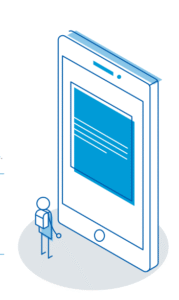Sharing, Selling, and Staying Legal: Open Education in my Classroom
Opening Reflection

This week in class, we were very fortunate to have guest speaker, Alan Levine, director of the Community for Open Education Global, present to all of us. He was very knowledgeable and dove into some great topics such as licensing, copyrights, and how “open” really works in education. Listening to him made me reflect on how all of this plays out in my own Grade 6/7 classroom, especially when I am using or creating resources that I want to share or sell.
In tonight’s class with Alan, we also discussed something that I was aware of it, but many others weren’t. According to the Saskatchewan Teacher’s Federation, any material that a teacher creates as part of their job is legally owned by the school division, not necessarily that specific teacher. This means if you create something in your classroom and then later on try to sell it on Teachers Pay Teacher (TPT), that technically could run into legal complications.
Teachers Pay Teacher & The Culture of Sharing
I do admit to often using Teachers Pay Teachers for certain worksheets, units, or classroom posters. It is so great to find something ready-made and ready-to-go, especially when it is made by a Saskatchewan teacher, and besides, why reinvent the wheel when we don’t need to? But when you buy a resource there, you usually see a big copyright notice that states that you can’t redistribute it, modify it for others, or share it freely. That’s the tension right there, a paid resource but with very strict restrictions.

Alan Levine’s talk reminded me that open education tries to flip that model: create and share resources with permission built in using open licenses so that others are able to reuse, remix and adapt the resources. To me, that is all about the culture of sharing. But I personally use both. I will buy things sporadically on TPT and sometimes I will find or build my own open-licensed resources.
STF, Ownership & What That Means
I did some digging and found some important legal information that I found as per our discussion in class tonight:

- The STF’s “Intellectual Property and You” document states that materials you create during normal school duties may technically be owned by your school division
- The document basically explains how your regular work (even off hours, if it is a part of your job), can fall under your employment scope meaning the school division could claim ownership
- The STF resource is meant to spark conversation and awareness (I know that teacher professional autonomy was discussed during bargaining last go around… so maybe this will change soon?)
Although I often make purchases from TPT, I am still hesitant to sell my own resources and products. Like if I make something really cool am I allowed to share it, sell it, or license it free?
Open Education vs Copyright Boundaries
Alan Levine’s talk and the STF documents gave me some perspective on how “open” works and why it matters:
Pros of Open Education/Open Licensing
- Resources can be shared freely
- Fewer barriers for teachers
- Encourages collaboration and keeps learning resources evolving (similar to what Alan was saying about Wikipedia)
Challenges
- How do we ensure the quality and reliability of resources?
- Open resources may not match your curriculum exactly (would need to adapt)
- Legal constraints (like division ownership)
What This Means for Me (and my 6/7 class)
- I am now more cautious when purchasing and using stuff from TPT
- When I create new worksheets or resources, I may check with my school division to release them as a Creative Common license
- If I ever see a resource I made shared elsewhere without permission, I know that all the legal stuff is complicated
- I will try to model open sharing in safe ways
- I need to teach my students more about copyright issues!!

Final Thoughts
Open education has huge potential to shift how we teach and share different resources. But at the same time, it is not just as simple as just saying “share everything” and we need to all understand ownership and licensing in our local context. Hearing Alan’s insights and comparing them with the STF policies has really opened my eyes to open education and all of this. Moving forward, I want to walk the line and use, create and share resources while also being cautious and aware of respect legal and professional boundaries.
I would love to hear from my fellow educators: How do you navigate using TPT vs open-licensed materials?
One thought on “Sharing, Selling, and Staying Legal: Open Education in my Classroom”
Great post, Jordan. I totally get what you’re saying about that tension between Teachers Pay Teachers and open education. I’ve never used TPT, but I agree sometimes it’s just so nice to have something ready to go when you’re stretched thin. But Alan’s talk really made me think about what we give up in terms of collaboration when everything is locked behind copyright.
The part about the division owning the materials you create surprised me too. I’d heard that before but never really thought about how it plays out in practice. Like you said, it’s tricky as we want to share and help each other out, but there are all these legal and ethical boundaries to navigate.
I really like your idea about checking with your division before releasing things under Creative Commons. That feels like a great way to still contribute and build that culture of sharing that Alan talked about. I also think modeling that mindset for students is so important and showing them what it means to share responsibly and give credit where it’s due.